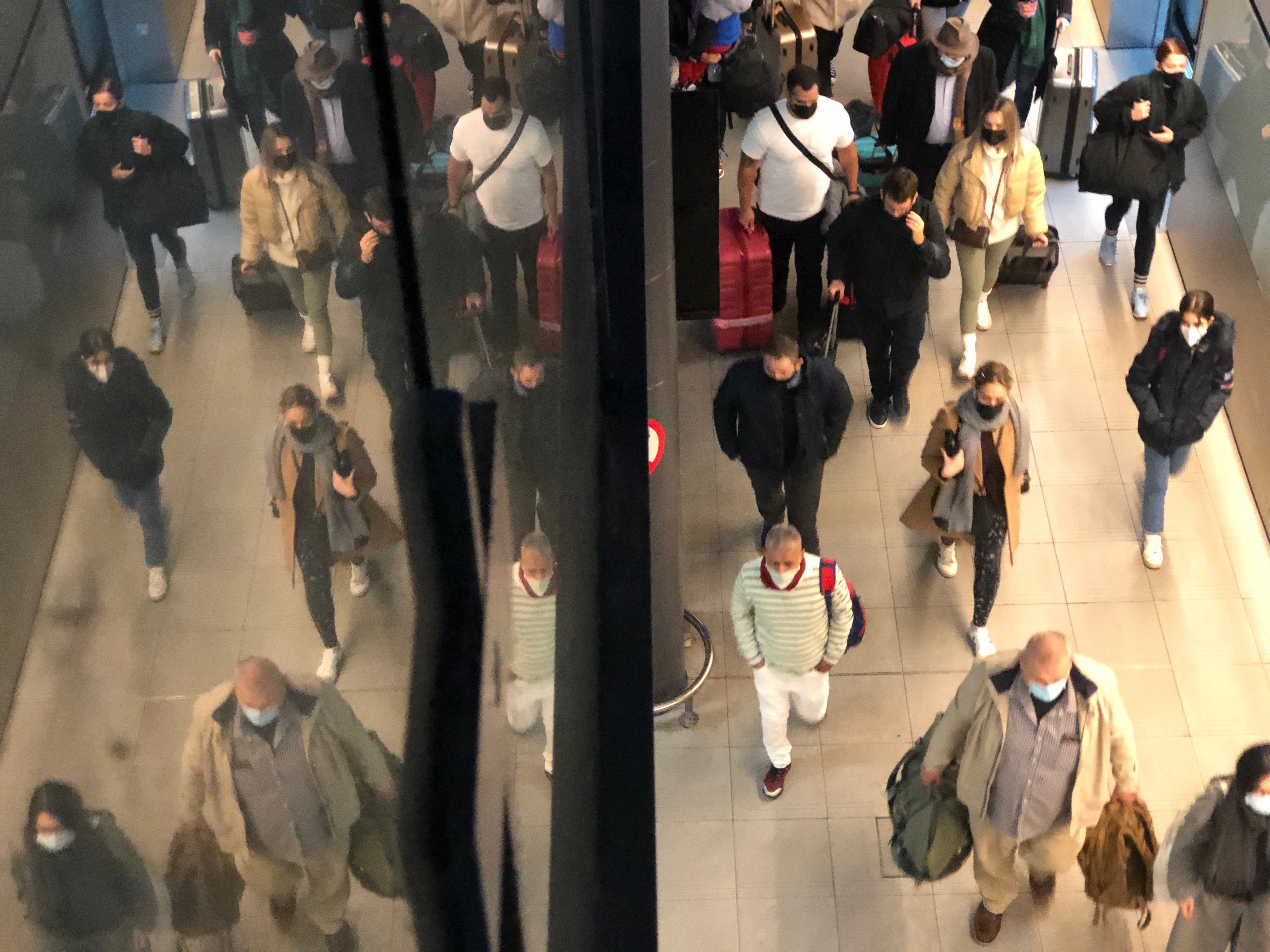UK drops more flights than any other country in Europe for second year running
Plane Talk: ‘For the second year running, the UK tops the list in terms of flights lost,’ says Eurocontrol

Could these two statements be related?
1. “We’re bringing in some tougher measures to stop the rapid seeding of Omicron in this country to give us the time we need to get the boosters in.” That was Boris Johnson speaking on 30 November, the day mandatory self-isolation was imposed for all arrivals from abroad to the UK, with quarantine until they have a negative PCR test result. A week later, pre-departure tests were made mandatory.
2. “For the second year running, the UK tops the list in terms of flights lost, followed at quite some distance by Germany, Spain, then France and Italy.” That is Eurocontrol, the pan-European air-traffic control provider, which has just issued figures for 2021 revealing how airlines and passengers in the UK have suffered a far deeper collapse in aviation than any other major European nation.
Everyone else managed to operate at least half the number of flights they achieved in 2019. But the UK saw only 36 per cent – barely one-third.
I have dug deeper into the Eurocontrol report so you don’t have to. Among major airlines, the sharpest reduction in flights was from the UK’s biggest budget carrier, easyJet, which was 64 per cent down. The average number of departures per day was just 607, compared with 1,671 in 2019. And bear in mind that many of the flights that did operate were within the European Union rather than to or from the UK.
While easyJet remains in the top 10 of European carriers – fifth behind Ryanair, Turkish Airlines, Air France and Lufthansa – British Airways has dropped out.
KLM, Wizz Air, Pegasus of Turkey, SAS and BA’s sister airline Vueling all operated more flights than the UK’s flag carrier.
London Heathrow has always been one of Europe’s top four airports, alongside Amsterdam, Frankfurt and Paris Charles de Gaulle. But both Istanbul’s main airport and Madrid have overtaken Heathrow in daily flights – with the UK’s busiest hub only just ahead of Istanbul’s second airport. And Eurocontrol describes the collapse of traffic at Manchester airport as “a staggering minus 67 per cent of pre- pandemic flows”.
Back to the British politicians responsible for demanding multiple tests from travellers. The prime minister assured the nation: “The measures that we have put in place will not last a minute more than we think they are strictly necessary for the protection of public health.”
Evidently they are still “strictly necessary,” then, even though no other European nation seems to think so.
Leaks to friendly media outlets excepted, the government has been silent on the subject since 15 December – when the aviation minister, Robert Courts, told MPs: “If we can slow down the infection rate, it helps us, first, to buy time to understand it and, secondly, to make sure that as many people are vaccinated as possible, which of course is the purpose behind the drive.”
Mr Courts insisted: “The pre-departure test is justified partly on the grounds of … slowing down transmission rates.
“You then have the up to two days post-arrival test, which is where you get into the sequencing point that you are well aware of. That is where you monitor what is happening, so you are monitoring what is coming into the country.
“That is how we know whether there is a variant coming in that we have to be concerned about. That is the purpose and why that remains.”
To sum up: five weeks after harsh new measures for arrivals were introduced, during which Omicron has swept across the UK, these measures are still essential. But not for any other European nation – which possibly helps to explain why EU countries are doing rather better than we are.
Final word from the government. A spokesperson tells me: “We recognise the challenging times facing the air transport sector due to Covid-19 and that’s why businesses have been able to draw from an unprecedented £350bn package of government support since the start of the pandemic, including around £8bn for the air transport sector.”
Subscribe to Independent Premium to bookmark this article
Want to bookmark your favourite articles and stories to read or reference later? Start your Independent Premium subscription today.

Join our commenting forum
Join thought-provoking conversations, follow other Independent readers and see their replies